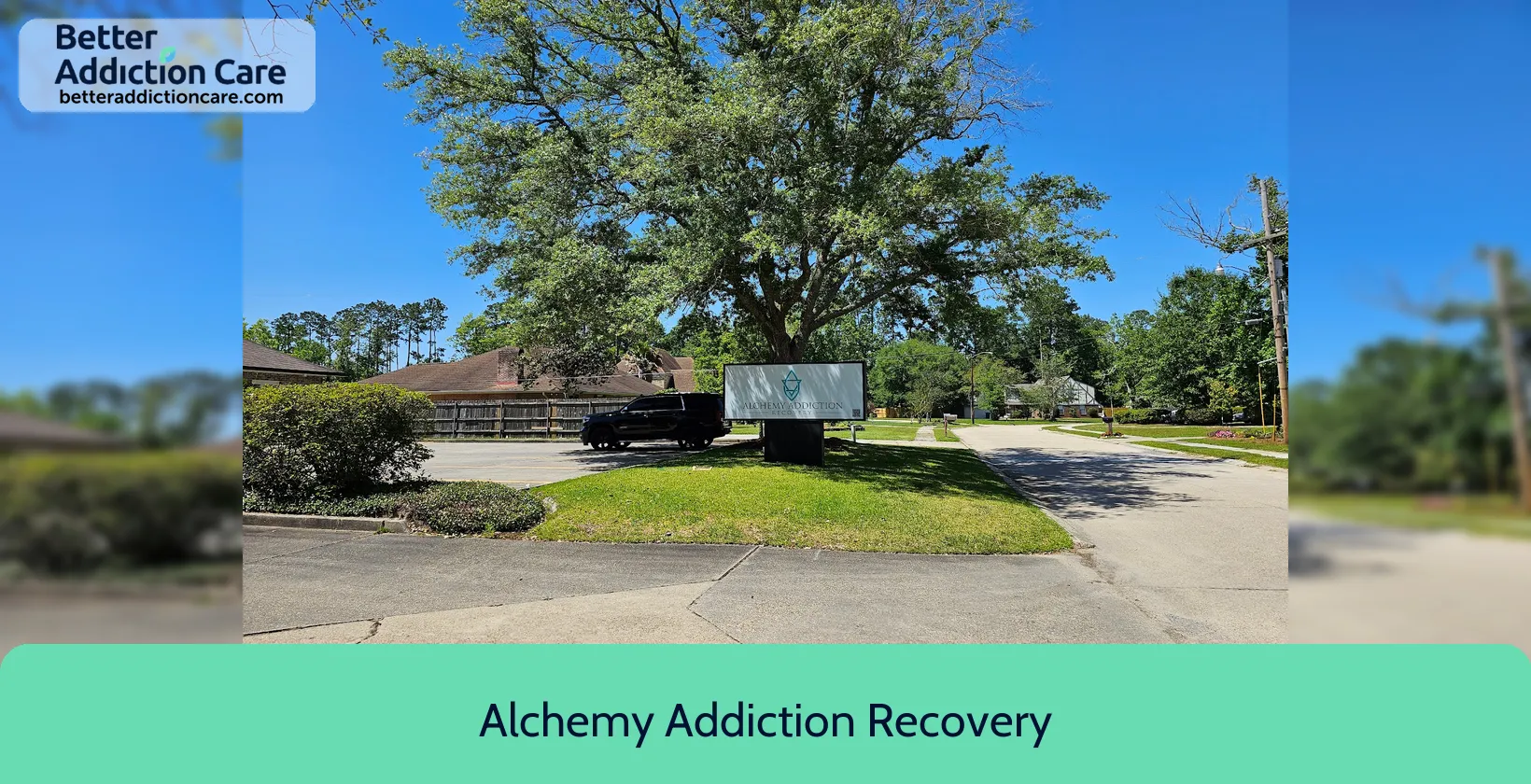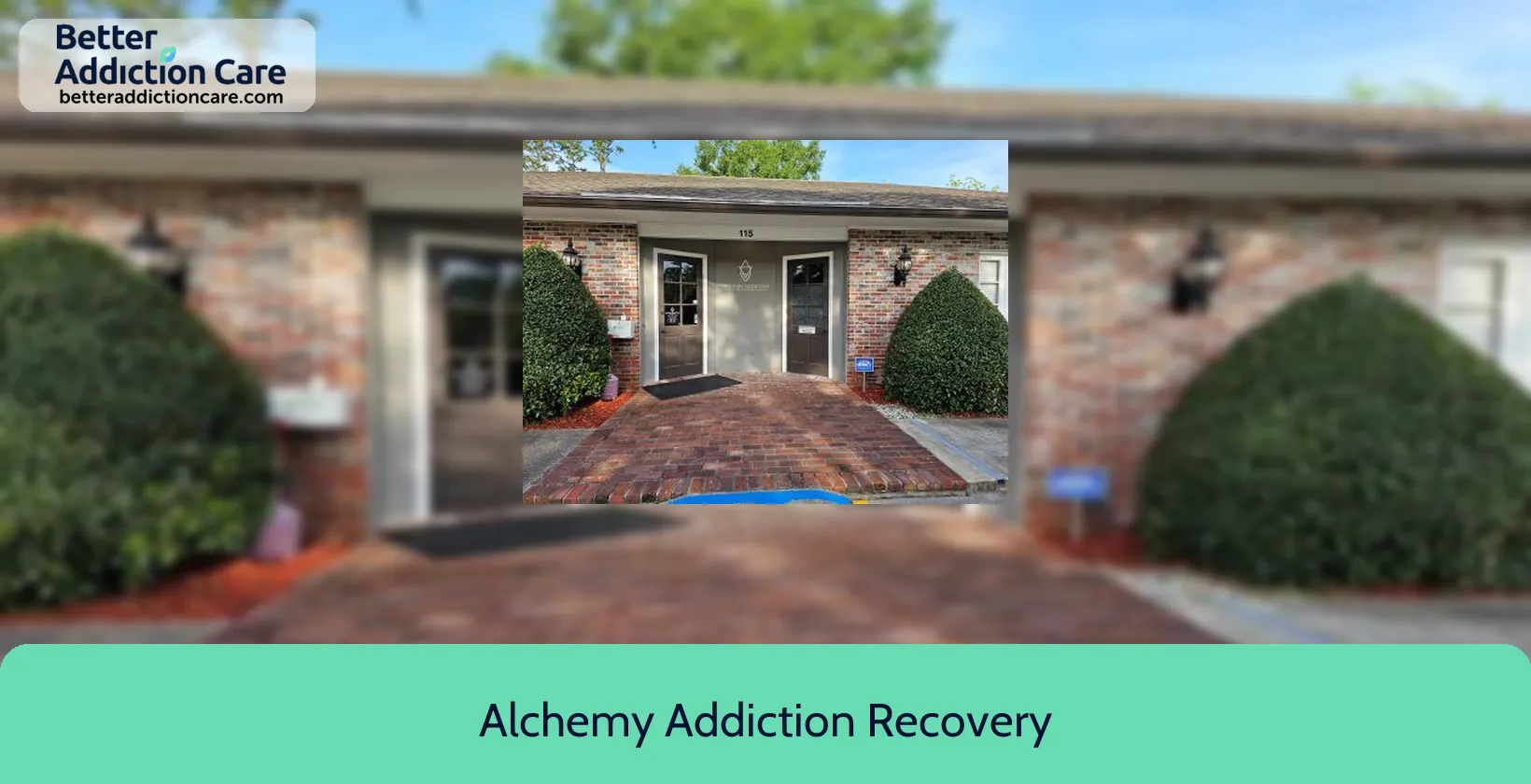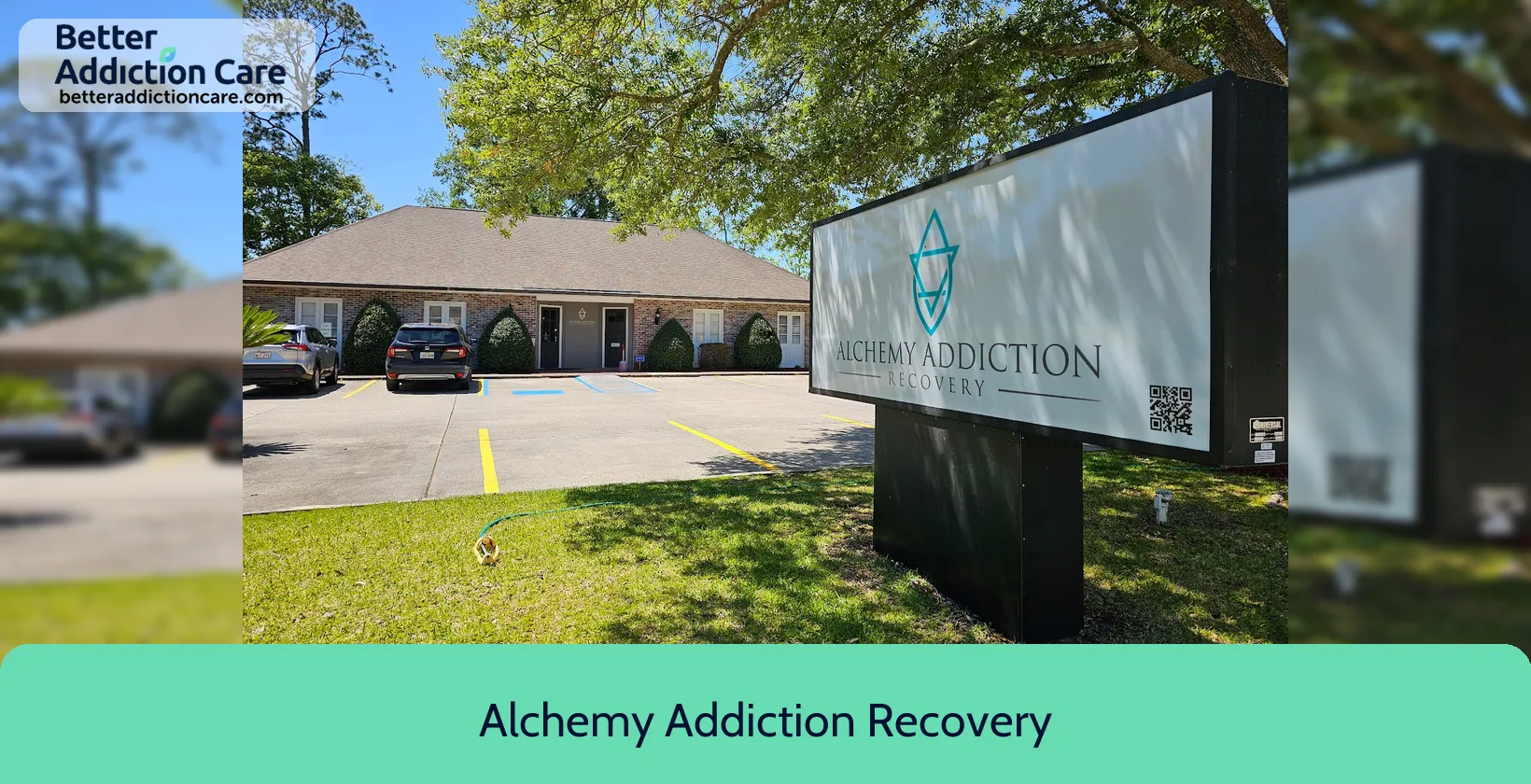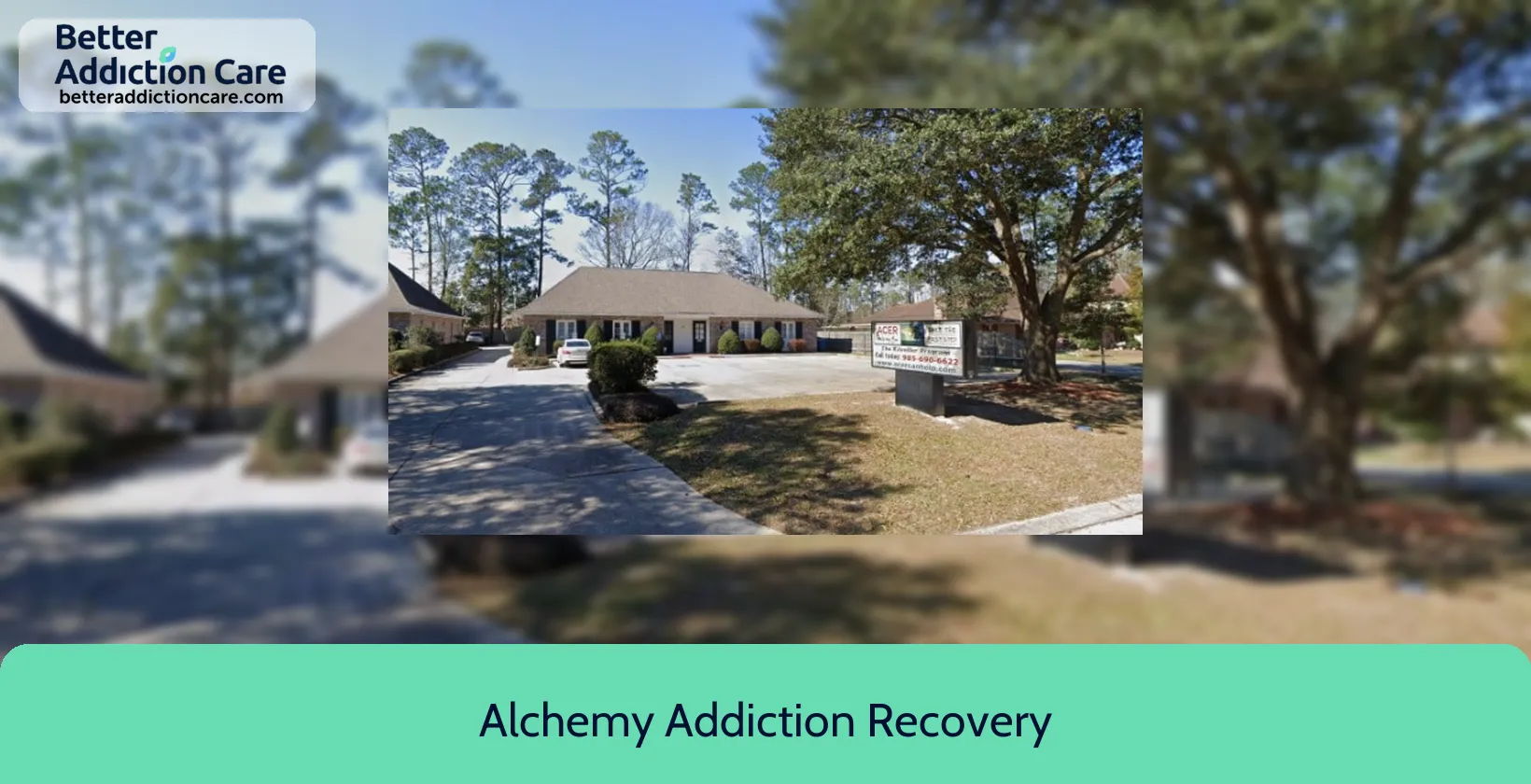Alchemy Addiction Recovery
Overview
At its Slidell, Louisiana, location, ACER is committed to provide each client personalized treatment in a welcoming, nonjudgmental atmosphere for people, families, and the community at large. In order to address drug use difficulties, ACER employs a team of caring and supportive professionals who utilize a mix of proven, comprehensive, and cutting-edge treatment approaches. Their mission is to enhance the lives of those they assist by providing all-encompassing care that encourages healing and personal development. The guiding principle of the facility is the conviction that everyone should have access to non-invasive, supportive care while undergoing therapy.
With the help of ACER's array of outpatient services, patients may get treatment in the privacy of their own homes. These services include medical detoxification, group and individual therapy, and psychiatric therapies. The institution provides a secure, orderly setting where patients get assistance at every step of their road to recovery. Their dedication to assisting people in making meaningful, long-lasting improvements in their lives, families, and communities is at the core of their strategy. The highly skilled team at the center, which consists of board-certified experts, licensed professionals, and addiction specialists, collaborates to support clients and their families throughout the rehabilitation process.
Inspiring customers to have healthy, useful, and productive lives is ACER's main goal. People are urged to embrace change and become engaged, contributing members of society via treatment and personal accountability. As essential elements of the healing process, the center stresses the significance of self-acceptance, enthusiasm, and concentrating on life's positive lessons. Although the road to rehabilitation may be difficult and uncertain, individuals can realize their full potential and choose their own healing route with the correct assistance.
The Commission on Accreditation of Rehabilitation Facilities (CARF) has accredited ACER, guaranteeing that its services and programs adhere to strict quality and safety guidelines. This certification is a testament to ACER's continued dedication to providing top-notch care and maintaining the highest standards for mental health and addiction treatment.
Alchemy Addiction Recovery at a Glance
Payment Options
- Cash or self-payment
- Medicaid
- Private health insurance
- Federal military insurance (e.g., TRICARE)
- Daily
Assessments
- Screening for tobacco use
- Comprehensive mental health assessment
- Comprehensive substance use assessment
- Interim services for clients
- Outreach to persons in the community
Age Groups
- Young adults
- Adults
- Seniors
Ancillary Services
- Case management service
- Integrated primary care services
- Suicide prevention services
- Early intervention for HIV
- Mental health services
Highlights About Alchemy Addiction Recovery
7.54/10
With an overall rating of 7.54/10, this facility has following balanced range of services. Alcohol Rehabilitation: 8.00/10, Drug Rehab and Detox: 8.46/10, Insurance and Payments: 6.00/10, Treatment Options: 7.70/10.-
Drug Rehab and Detox 8.46
-
Alcohol Rehabilitation 8.00
-
Treatment Options 7.70
-
Insurance and Payments 6.00
Accreditations
State department of health:

Government agencies issue State Licenses, granting permission to rehabilitation organizations to conduct their business operations lawfully within specific geographic regions. Generally, the particular rehabilitation programs offered by a facility and its physical location dictate the necessary licenses needed for legal operation.
Commission on Accreditation of Rehabilitation Facilities (CARF):

CARF accreditation is a globally recognized certification for rehabilitation and human service organizations. It signifies that an organization meets high-quality standards and is committed to providing top-level care. Achieving CARF accreditation involves a rigorous evaluation process, including on-site surveys. This accreditation enhances an organization's reputation, instills trust in clients and funders, and encourages ongoing excellence in the field.
Treatment At Alchemy Addiction Recovery
Treatment Conditions
- Alcoholism
- Mental health treatment
- Substance use treatment
- Co-occurring Disorders
- Opioid Treatement
Care Levels
- Outpatient
- Outpatient detoxification
- Outpatient methadone/buprenorphine or naltrexone treatment
- Intensive outpatient treatment
- Regular outpatient treatment
Treatment Modalities
- Cognitive behavioral therapy
- Telemedicine/telehealth therapy
- Substance use disorder counseling
- Trauma-related counseling
- Smoking/vaping/tobacco cessation counseling
Ancillary Services
Additional Services
- Pharmacotherapies administered during treatment
- Mentoring/peer support
- Breathalyzer or blood alcohol testing
Special Programs
- Pregnant/postpartum women
- Clients who have experienced trauma
Get Help Now
Common Questions About Alchemy Addiction Recovery
Contact Information
Other Facilities in Slidell

6.86
DISCLAIMER: The facility name, logo and brand are the property and registered trademarks of Youth Service Bureau of St Tammany - Slidell Location, and are being used for identification and informational purposes only. Use of these names, logos and brands shall not imply endorsement. BetterAddictionCare.com is not affiliated with or sponsored by Youth Service Bureau of St Tammany - Slidell Location.




